Search Images
Browse Content (p. 853)

Image
Sufferer of St. Anthony's Fire
A detail of a c. 1512 CE painting by Mathias Grunewald showing a man suffering from St. Anthony's fire (ergotism). 'Temptation of St. Anthony'. (Unterlinden Museum, Colmar, France)
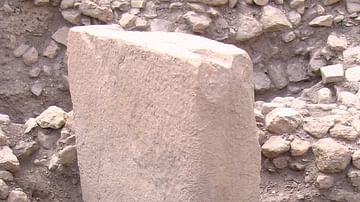
Image
Göbekli Tepe Pillar 27, Enclosure C, Layer III
Göbekli Tepe is a c. 12,000-year-old archaeological site in Anatolia, Turkey. The site chronology is divided into three levels, Layer I being the youngest and Layer III the oldest and deepest. Layer III is also the most sophisticated level...
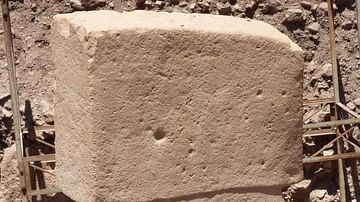
Image
Göbekli Tepe, Pillar with Sculpture of a Fox
Göbekli Tepe is a c. 12,000-year-old archaeological site in Anatolia, Turkey. One characteristic feature of the site is the abundance of monumental stone pillars, often arranged in a circle and elaborately decorated in many cases. This...
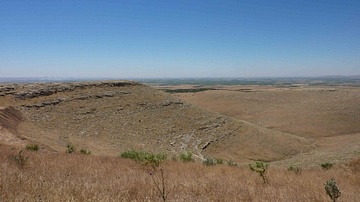
Image
Göbekli Tepe, Turkey
Area surrounding the site of Göbekli Tepe, Turkey. The archaeological site of Göbekli Tepe dates back to the end of the last Ice Age, 12,000 years ago, and was discovered in 1995 CE. It is the world's oldest example of monumental architecture...
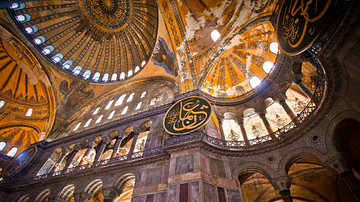
Image
Hagia Sophia Interior Ceiling
Photo showing the interior of the Hagia Sophia, Istanbul, constructed 532-537 CE.
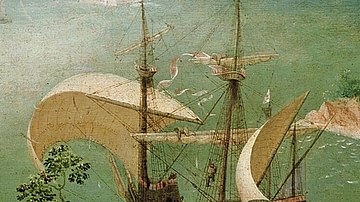
Image
A Carrack Ship by Bruegel
A detail of a c. 1558 CE painting by Pieter Bruegel showing a carrack ship, the type of vessel used by the Spanish and Portuguese in the 16th century CE to transport treasure and precious cargo from the New World and Asia to Europe.

Image
Thomas Cavendish
A c. 1620 CE portrait of the Elizabethan mariner and privateer Thomas Cavendish (1560-1592 CE). Cavendish famously circumnavigated the globe in 1586-88 CE, only the third such voyage at that point. (National Portrait Gallery, London)
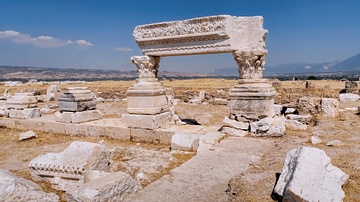
Image
Remains of Ancient Monument in Laodicea
Most of the ruins seen in Laodicea on the Lycus in Phrygia (Turkey) today belong to the Hellenistic, Roman, and Byzantine periods.
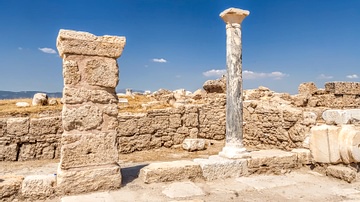
Image
Columns at Laodicea on the Lycus
Archaeologists have discovered massive columns in Laodicea on the Lycus in Phrygia (Turkey) dating to the first and second centuries CE.
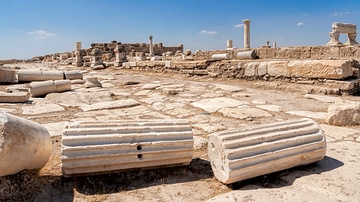
Image
Ruins at Laodicea on the Lycus
Laodicea, in Phrygia (Turkey), was a Hellenistic Period and Roman city which was abandoned after a severe earthquake that damaged its waterways. Later, groups of Sassanids and then Arabs repeatedly plundered the city. Following its abandonment...